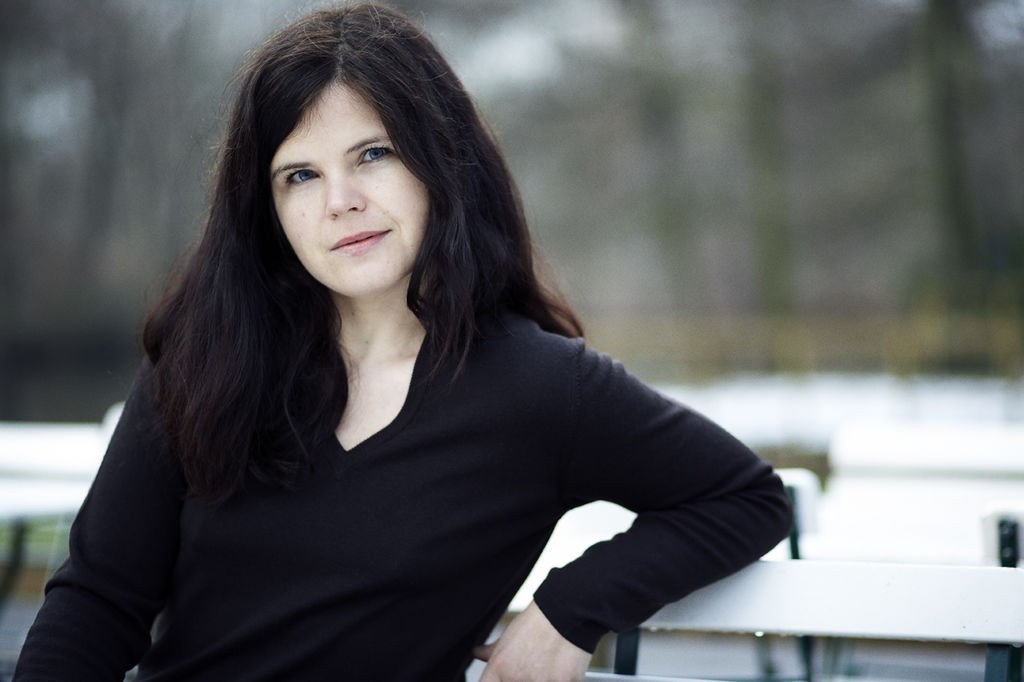by Monica Salazar

Award-winning, contemporary German author Julia Franck will be visiting campus for the University of Portland’s Readings & Lectures Series this November. In her writing, Franck explores Germany’s dark, complex history and how major political events shaped the lives of everyday German citizens—especially women—during the twentieth century. I sat down with Dr. Alexandra Hill, a German professor here at UP who has written extensively about Franck in her academic publications, to ask her a bit about Franck’s work.
MS: How did you come to know Julia Franck and her work? How did she influence your academic work?
AH: I was a German major in college, and I studied abroad in Berlin in my junior year and bought her second book, called Lagerfeuer; the translation of the title in English would roughly be “The Love Servant.” It was the first book I bought in German to read for fun. I loved it. Then, when I was in graduate school, her next book came out; and I was in Berlin again, so I went to one of Julia Franck’s readings and had her sign the book.
When I came back from that time in Berlin, it was getting [to be] time to write my dissertation, and I was coming up with all these ideas that I thought sounded nice and scholarly and academic. In the end my advisor said, “You love Julia Franck, why not write about her?” And I was like, “I can do that?!” I made another trip to Berlin just to meet with her. She was so nice, and I interviewed her over two days. We have kept [in] contact through e-mail since 2006; and since then, she has won the German Book Prize.
In addition to my dissertation, I’ve published articles about her; a lot of my publications in general focus on her work, and in our e-mail correspondence, I ask her a lot about contemporary issues in German culture. Her books look at the daily lives of women and how these big political decisions that are usually made by men trickle down into the everyday lives of the people who have to experience the consequences of them. Her books on the one hand might seem like they are focused on everyday details, but at the same time, they are telling the history of an entire country.
MS: What was the socio-political environment like in Germany when Franck was growing up?
AH: She was born in East Germany in 1970, and then in 1978, her mother took her and her sister to West Germany. So they actually—even though they were Germans—had to spend nine months in a refugee camp. That experience, I think, had a really strong impact on her. It informed her writing in a lot of ways. She is also interested in Germany’s history in World War II and Germany’s history with National Socialism—in part because of [the] ways that [these events] affected her own family history.
In [her novel] The Blindness of the Heart, she follows a young woman who grows up between the two World Wars and lives through Germany’s Nazi rise to power and exposes how these political events affected the lives of everyday individuals, especially women. There is also a personal connection in her writing because she has taken some moments of her family history and has used them as a starting point in her fiction. Her books aren’t autobiographical, but in a lot of ways, she draws on experiences of people who are close to her. In The Blindness of the Heart, she asks the question, “What was it like to be a woman raising a son in World War II all alone?”
MS: How does Franck portray women differently, and how does she challenge traditional female roles?
AH: When I interviewed her the first time, I asked her why all of her mother characters were negative. Franck thought about my question for a long time and responded that they are not negative; they are just people, complicated people. And the point is [that] we try to idolize mothers; we make them into these abstract symbols of love and childhood and safety and all of these beautiful, glorified, feminine ideals, but her point is that mothers are people also. They have anger and selfishness, and they don’t necessarily live for their children. The negative response readers have to these women says more about their assumptions of motherhood than it does about her books. We think these women are cruel because we are bringing our own idealized versions of motherhood to these texts, and when these don’t line up, we get frustrated. Some people have gone so far as to think that she is anti-feminist because of her portrayal of women, but I disagree. I think it’s much more interesting and much more truthful to let female characters be a whole range of things. There are all of these masculine roles where the man can be a jerk, and he is cooler for it. Then, the fact [is] that we expect female characters to always be positive; that’s creating expectations that are just too narrow.
MS: Which book would you want your fellow faculty members and UP students to read?
AH: I would say The Blindness of the Heart is probably the best place to start because it has this amazing scope; it’s telling the whole story of Germany from 1910 to [the] 1960s, and I love how she captures those moments in history. Also, I think the complexity of the characters and the heartbreaking story are other big reasons I would suggest this book.
Julia Franck will be reading in Franz 120 on November 2nd, at 7:30 pm.
*Photo by Thorsten Greve CC BY-SA 3.0 de
